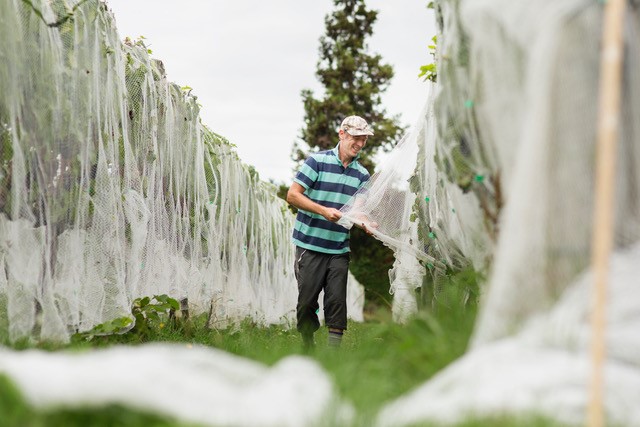Winegrowers welcome tasting fee

Paul Miles, co-owner of Riwaka River Estate vineyard and winery and chairperson of Nelson Winegrowers Association Incorporated, says the change to allow winery cellar doors have the option to charge for tastings as they see fit is welcome news. Photo: Supplied.
Nelson Tasman winegrowers are welcoming the Sale and Supply of Alcohol (Winery Cellar Door Tasting) Amendment Bill’s approval after its third reading.
The changes now allow winery cellar doors with an off-license to charge for wine tastings, addressing previous financial hurdles in covering operational expenses.
“I view this as a very positive step which addresses long-standing issues for those in the winery industry,” Paul Miles, co-owner of Riwaka River Estate vineyard and winery and Chairperson of Nelson Winegrowers Association Incorporated, says.
Paul has been a key advocate for this change, representing both Riwaka River Estate and Nelson Winegrowers Association Incorporated as the Amendment Bill made its way through the legislative process.
“This update means our winery cellar doors have the option to charge for tastings as they see fit, along with a requirement to offer snack food for sale. Our cellar doors play a key role in our regional tourism story and its activities, and they are, in effect, ambassadors for our region,” he explains.
“This change brings them more in line with other tourism operators and will enable them to continue to provide visitors with an incredible tourism experience.”
Rosie Finn from Neudorf Vineyards says it’s fantastic news and will make a significant difference to small wineries and the NZ wine brand.
She says the change will improve the customer experience as wineries will be more inclined to pour their more expensive bottles.
“I think normalising charging for tastings brings us in line with other world-famous wine regions,” Rosie adds.

The new regulations will take effect before the bustling summer season, ensuring winery cellar doors uphold responsible hosting practices. These include limiting sample sizes to a maximum of 35ml and complying with new requirements to offer snack food for sale and provide free water.
These adjustments aim to assist cellar doors in meeting their expenses and encourage the establishment of new winery cellar doors that may not have been economically viable previously.
This initiative is also expected to generate employment opportunities and enhance tourism experiences.
